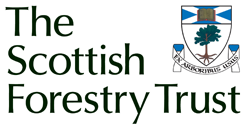Can ecological restoration help build sustainable communities?
Carried out by: Cardiff University
Summary Description:
The PhD will study the implementation of integrated socio-ecological restoration initiatives at community level to deepen understanding of how ecosystem-human relations can contribute to community engagement processes and the building of sustainable communities. It will focus on a particular type of ecological initiative - ecological restoration (ER) - to study the ways in which ER projects have been implemented at community level in Britain. Although playing an increasingly important role in public policy responses to environmental change (including maintenance of ecosystem services and promotion of ecological resilience), ER has not been subject to in-depth social science analysis.
Specific Research Objectives include:
• Create a better understanding of the role and function of ER as a tool for promoting community engagement and sustainability, and gain insight into the social acceptability of ER.
• Understand the conditions for achieving successful community participation in ER, looking in particular at how they involve place specific issues and attachment processes.
• Develop a critical awareness of the governance conditions surrounding ER (such as participation and regulation) for building community adaptation to environmental change and community resilience.
• Demonstrate the value of multi-method research involving in depth qualitative longitudinal case studies for studying dynamic participatory processes and social surveys for measuring the effectiveness of ER interventions.
Timescale: 2013-2016
SFT Funds Awarded: £21,100
Project Outcomes:
There is concern that social and technological changes mean people are increasingly disconnected from nature. Initiatives that involve participants carrying out practical work in nature are hypothesised to remedy this disconnection. In particular ‘hands-on’ participation in ecological restoration is claimed as a way of enabling participants to develop a sense of connection with nature. This thesis examines the claim, investigating hands-on restoration as a practice and the kinds of relationships with nature that it produces among those who participate. Ethnographic methods were used to examine a case study of hands-on ecological restoration in the Scottish Highlands that specifically aims to enable groups to feel a ‘connection to nature’.
The research extends our existing knowledge in a number of key respects. A connection to nature among restoration participants is most commonly articulated as a sense of belonging to a wider community of nature, wherein ‘nature’ is understood as an all-encompassing abstract entity. This connection to ‘nature’ is enabled by entities that are representative of ‘nature’. These entities can be abiotic, degraded and humanised forms of nature, which suggests that a sense of connection to nature is not necessarily associated with living non-human nature. The physical ‘doing’ of restoration facilitates an embodied intimacy and positive affective experience of nature. The narrative of ‘restoration’ enables participants to feel their actions are making meaningful reparation to nature. This is felt most clearly when attached to symbolic tasks such as tree-planting, but less clearly to other more ambiguous tasks. In addition, the encouragement of curiosity and use of mindfulness, meditation and ritual helps participants observe nature and elevates the significance of the experience. A key paradox, however, is that feelings of connection to nature facilitated by such exceptional immersive experiences are unlikely to endure beyond that experience, into everyday life.
SFT/FC Joint Bursary Award Scheme:. This project has received funding from the SFT/FC Joint Bursary Award.
